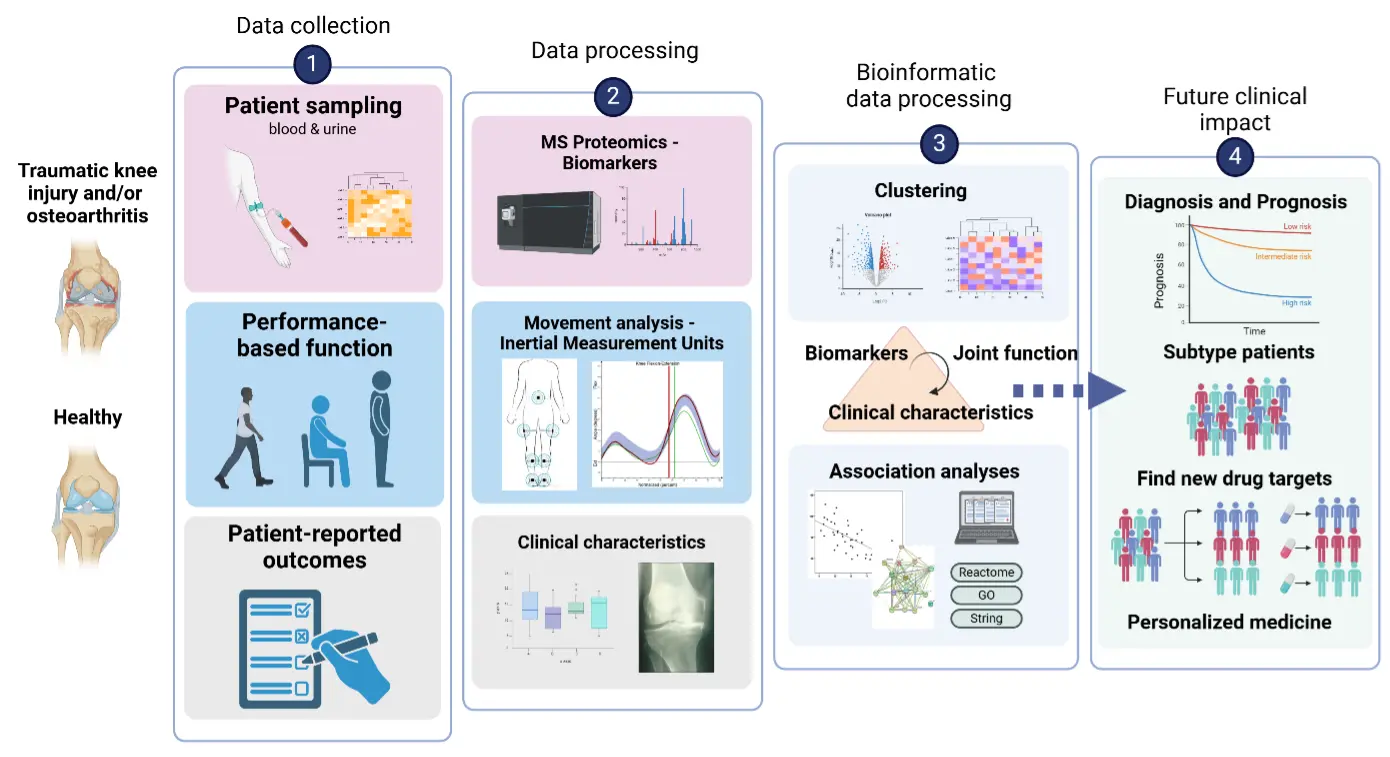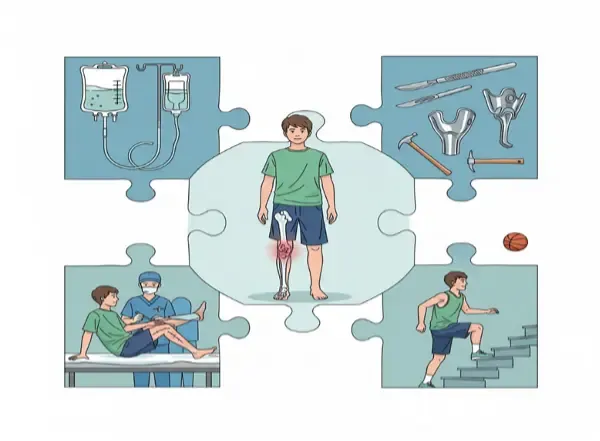Central to the research are various methods for evaluating joint mobility, joint and foot loading, and their connection to perceived pain and biomarkers in blood. Furthermore, we aim to investigate their significance for disease progression, treatment selection, and outcomes of administered treatments.
BIOFUNC – Studies focusing on osteoarthritis development and the link between knee function and blood biomarkers.
In individuals with established knee osteoarthritis, we have found associations between substances in the blood and the progression of knee function and pain over time. An anterior cruciate ligament (ACL) rupture is a common knee injury among athletes, and nearly half will develop knee osteoarthritis later in life. Surgical ACL reconstruction has not been shown to reduce the risk of osteoarthritis, and currently, there is no way to predict who will develop knee osteoarthritis.
The ongoing BIOFUNC project evaluates knee function, perceived symptoms, and blood substances in individuals with established osteoarthritis and those who have undergone ACL reconstruction, who thereby have an increased risk of developing osteoarthritis. The goal is to identify methods to predict osteoarthritis development.

Physical function and capacity after limb-sparing surgery
Sarcoma is a group of tumors that arise in the body’s connective and supporting tissues and can affect people of all ages. A prerequisite for curing the disease is that the tumor is completely removed through surgery. Most often, it is possible to perform an operation in which the tumor and adjacent soft tissue are removed while still preserving the limb, instead of amputating it. This is called limb-sparing surgery. Rehabilitation plays a crucial role in preserving mobility, independence, and quality of life. Although we know a great deal about the long-term durability of these surgical procedures, we still know relatively little about how the function of the operated leg develops over time — and how the patients themselves experience it.
This research project aims to examine how patients feel and how their physical function and capacity are after such an operation. By measuring physical ability, activity level, quality of life, and the patients’ own experiences, we can determine what influences recovery. With this knowledge, we can improve rehabilitation and provide better support to future patients.

Recurrent foot deformity in children with clubfoot
The project aims to evaluate standardized follow-up for children with clubfoot (congenital talipes equinovarus) to identify the best methods for detecting recurrence (return of foot deformity). The methods include examining ankle range of motion, dynamic foot loading during walking (pedobarography), clinical assessment tools, and video observation of children walking. Can we predict the risk of recurrence in children with clubfoot?

